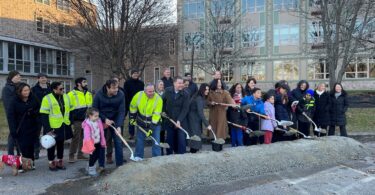Boston – With the increasing complexity of the built environment—the operation of multi-campus buildings, managing multi-faceted HVAC facilities, understanding intricate security systems—coupled with the ever-growing need to be cost-efficient, there is great demand for facility managers to think more strategically.
This growing need for strategic thinking in the field of facility management (FM), in turn, is creating high demand for a more professionalized workforce. Today’s facility manager must not only have the technical knowledge to manage the 21st century built environment, but must also possess the business savvy to have a seat at the executive table. The facility manager’s insight and management expertise guide the operation, technology, systems, finance, and innovation for facilities of all types, and help organizations achieve fiscal efficiency, since facilities are typically the second-highest business cost (after labor).
In response to the need for a more professionalized, strategic facility manager, Wentworth Institute of Technology launched the Master of Science in Facility Management (MSFM) program in the fall of 2012. The MSFM program educates students in foundational post-graduate management principles while enhancing facility management skills and knowledge. Students learn the leadership and business skills necessary to keep their facilities highly efficient and functional. The program is designed for working adults, and can be completed part-time, either on-campus or online, in 20 months.
The school recently announced it has its first graduating class from the MSFM program. The inaugural class was composed of students from various educational and professional backgrounds, all with a common goal of building advanced knowledge in the FM profession. A dynamic mix of students, together with instructors who bring both theoretical and applied knowledge to the classroom, creates an ideal learning environment for future FM leaders and builds stronger networks in the field. Below, we highlight three of these talented students.
Michelle Moffo
Michelle, who currently works as a consultant at Manhattan Software in their Connecticut office, was attracted to the facility management profession because she saw a changing field with a lot of opportunity. She enrolled in the MSFM program at Wentworth because she believed it would allow her résumé to stand out and help her to get ahead. One of the key things that Michelle learned is that FM is a very robust, multifaceted profession. According to Michelle, “Wentworth’s master’s degree crystallized for me the fact that facility management is not just about operations and maintenance—it is a complex field that requires proficiency in a number of areas. The MSFM program at Wentworth prepared me to excel as a facility management professional.”
Anthony Rauseo
After more than 30 years working in the IT field, Anthony made a career transition into real-estate development and property management. The MSFM program has helped him to launch his own Maine-based business, Big Bear Rentals (also the subject of his master’s capstone project), and provided him with new skills that aided in constructing the nation’s first Energy Star-rated round-log home. Anthony found the sustainability and operations courses in the MSFM program to be particularly valuable, since they’ve helped him to become more self-sufficient—and save money—in his new venture. He is very satisfied with the MSFM program’s outcomes and looks forward to growing his business.
Randi Eggleston
There were several aspects of the MSFM program at Wentworth that were appealing to Randi, who works as a space planner at Boston Scientific, including the flexibility that the program provides. The fact that she didn’t have to come to campus every week for every class in the program made it easier to balance her educational aspirations with her obligations as a busy working professional. The classroom environment itself was also attractive to Randi, and spurred her professional development over the past two years. “All of the professors work in industry, so they are able to relate the instructional content to the real world,” Randi said. “My classmates work in jobs related to facility management, creating peer-to-peer learning as well as regular opportunities to ‘talk shop.’”













